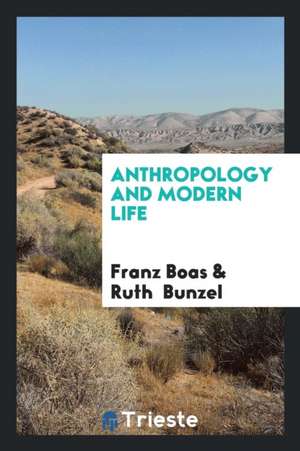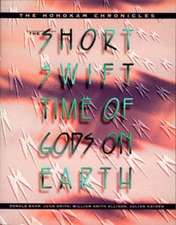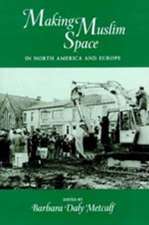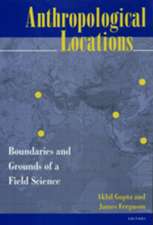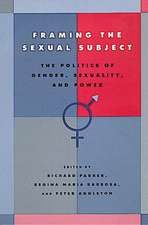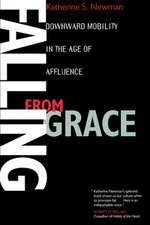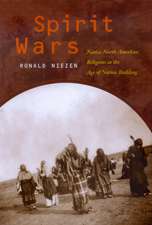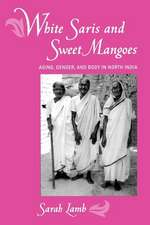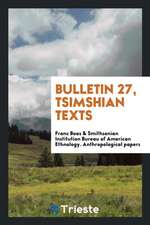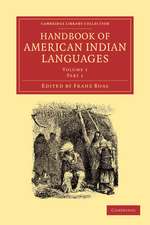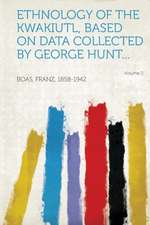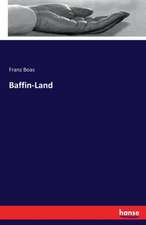Anthropology and Modern Life
Autor Franz Boasen Limba Engleză Paperback – 16 mai 2018
Franz Boas (1858-1942) is widely regarded as the founder of American anthropology. He influenced an astonishing variety of scholars and researchers, from the anthropologists Margaret Mead and Ruth Benedict, to the philosopher W. E. B. Du Bois, and novelist Zora Neale Hurston. Towards the end of his life he also lectured widely in an attempt to educate the public on the dangers of Nazi ideology.
Anthropology and Modern Life demonstrates the incredibly rich and fertile range of Boas's thought, engaging with controversies that resonate loudly today: the problem of race and racial types; heredity versus environment; the significance of intelligence tests; open versus closed societies; the 'nature versus nurture debate'; and nationality and nationalism.
Believing passionately that science should be used to break down racial and cultural barriers, from the book's very opening Boas shatters the myth that anthropology is simply a collection of 'curious facts about exotic peoples'. Thanks to Boas's influence, anthropologists and other social scientists began to see that differences among the races resulted not from physiological factors, but from historical events and circumstances, and that race itself was a cultural construct.
This Routledge Classics edition includes a new foreword by Regna Darnell and an introduction and afterword by Herbert S. Lewis, who details Franz Boas's life, influence, and ideals.
"In writing the present book I desired to show that some of the most firmly rooted opinions of our times appear from a wider point of view as prejudices, and that a knowledge of anthropology enables us to look with greater freedom at the problems confronting our civilization." - Franz Boas, Anthropology and Modern Life
| Toate formatele și edițiile | Preț | Express |
|---|---|---|
| Paperback (3) | 90.42 lei 6-8 săpt. | +14.84 lei 7-13 zile |
| Taylor & Francis – 29 mar 2021 | 124.11 lei 3-5 săpt. | +14.84 lei 7-13 zile |
| Pantianos Classics – 31 dec 1927 | 90.42 lei 6-8 săpt. | |
| LIGHTNING SOURCE INC – 16 mai 2018 | 126.22 lei 17-24 zile | |
| Hardback (2) | 354.97 lei 6-8 săpt. | |
| Greenwood Press – 31 ian 1984 | 354.97 lei 6-8 săpt. | |
| Taylor & Francis – 29 mar 2021 | 736.54 lei 6-8 săpt. |
Preț: 126.22 lei
Nou
24.16€ • 24.86$ • 20.37£
Comandă specială
Livrare economică 03-10 februarie
Specificații
ISBN-10: 0649058968
Pagini: 268
Dimensiuni: 156 x 234 x 14 mm
Greutate: 0.38 kg
Editura: LIGHTNING SOURCE INC
Cuprins
Notă biografică
Recenzii
"…the father of American cultural anthropology and the scholar who taught generations how to think about human diversity without hierarchy." - Kwame Anthony Appiah, The New York Review of Books
Descriere
Franz Boas (1858-1942) is widely regarded as the founder of American anthropology. He influenced an astonishing variety of scholars and researchers, from the anthropologists Margaret Mead and Ruth Benedict, to the philosopher W. E. B. Du Bois, and novelist Zora Neale Hurston. Towards the end of his life he also lectured widely in an attempt to educate the public on the dangers of Nazi ideology.
Anthropology and Modern Life demonstrates the incredibly rich and fertile range of Boas's thought, engaging with controversies that resonate loudly today: the problem of race and racial types; heredity versus environment; the significance of intelligence tests; open versus closed societies; the 'nature versus nurture debate'; and nationality and nationalism.
Believing passionately that science should be used to break down racial and cultural barriers, from the book's very opening Boas shatters the myth that anthropology is simply a collection of 'curious facts about exotic peoples'. Thanks to Boas's influence, anthropologists and other social scientists began to see that differences among the races resulted not from physiological factors, but from historical events and circumstances, and that race itself was a cultural construct.
This Routledge Classics edition includes a new foreword by Regna Darnell and an introduction and afterword by Herbert S. Lewis, who details Franz Boas's life, influence, and ideals.
"In writing the present book I desired to show that some of the most firmly rooted opinions of our times appear from a wider point of view as prejudices, and that a knowledge of anthropology enables us to look with greater freedom at the problems confronting our civilization." - Franz Boas, Anthropology and Modern Life
